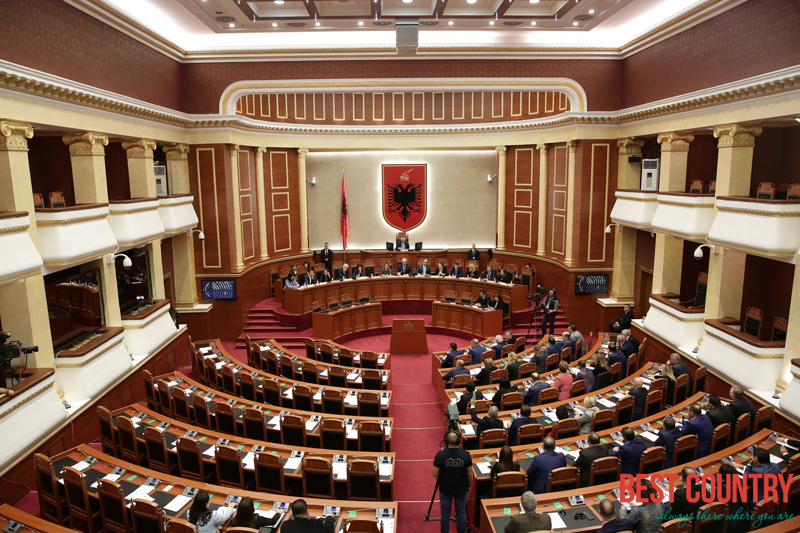Political structure of Albania

he head of state in Albania is the President of the Republic. The President is elected to a 5-year term by the Assembly of the Republic of Albania by secret ballot, requiring a two-thirds majority of the votes of all deputies. The next election will run in the year 2012. The current President of the Republic is Bamir Topi.
The President has the power to guarantee observation of the constitution and all laws, act as commander in chief of the armed forces, exercise the duties of the Assembly of the Republic of Albania when the Assembly is not in session, and appoint the Chairman of the Council of Ministers (Prime Minister).
Executive power rests with the Council of Ministers (cabinet). The Chairman of the Council (Prime Minister) is appointed by the President; ministers are nominated by the President on the basis of the Prime Minister's recommendation.
The People's Assembly must give final approval of the composition of the Council. The Council is responsible for carrying out both foreign and domestic policies. It directs and controls the activities of the ministries and other state organs.
The Assembly of the Republic of Albania (Kuvendi i Republikës së Shqipërisë) is the lawmaking body in Albania. There are 140 deputies in the Assembly, of which 100 are directly elected by an absolute majority of the voters, and 40 are chosen by their parties on the basis of proportional representation.
The President of the Assembly (or Speaker) has two deputies and chairs the Assembly. There are 15 permanent commissions, or committees. Parliamentary elections are held at least every 4 years.
- The Assembly has the power to decide the direction of domestic and foreign policy;
- approve or amend the constitution; declare war on another state;
- ratify or annul international treaties;
- elect the President of the Republic, the Supreme Court, and the Attorney General and his or her deputies;
- and control the activity of state radio and television, state news agency, and other official information media.
The court system consists of a Constitutional Court, the Court of Cassation, appeals courts, and district courts.
The Constitutional Court comprises nine members appointed by the People's Assembly for maximum 9-year terms. The Constitutional Court interprets the constitution, determines the constitutionality of laws, and resolves disagreements between local and federal authorities.
The remaining courts are each divided into three jurisdictions: criminal, civil, and military. The Court of Cassation is the highest court of appeal and consists of 11 members appointed by the People's Assembly and serving 7-year terms.
The President of the Republic chairs the High Council of Justice (HCJ) charged with appointing and dismissing other judges. The HCJ was expanded in late 1997 to comprise 13 members from among the various branches of government.